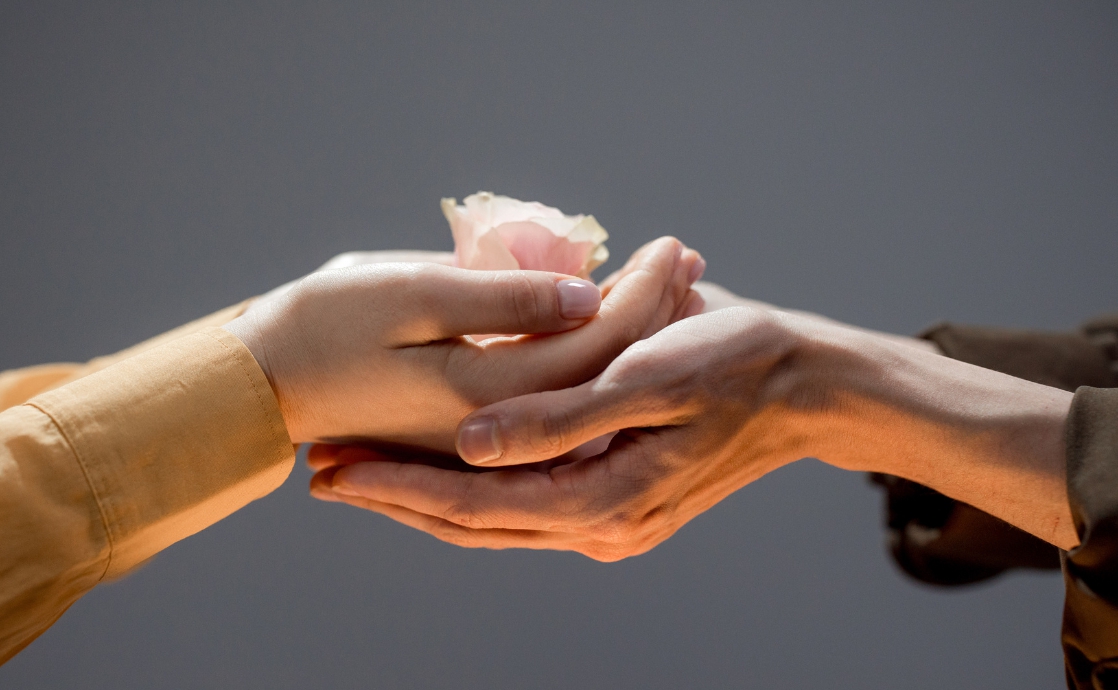The views expressed in our content reflect individual perspectives and do not represent the authoritative views of the Baha'i Faith.
“Close your eyes, cross your arms, put your two feet on the floor” – as a child, I heard these instructions from adults whenever prayers were said at family gatherings or in children’s classes.
These instructions seem simple enough – but not for an undiagnosed neurodivergent child. Whenever I closed my eyes, thoughts came rushing in. When I opened them, I counted the number of people who had their eyes closed or followed how the person praying aloud moved their lips.
I still remember the different patterns in the rugs in our friends’ homes – that was where my eyes were drawn while others prayed. I tried not to cross my legs or tap my fingers, but I rarely succeeded.
RELATED: How to Overcome 9 Hindrances to Prayer
My ongoing battle wasn’t just with my body; it was also with my mind, which wouldn’t let me break out of such repetitive routines. I needed people to tell me exactly what actions were acceptable in certain social settings. I couldn’t pray in the way those around me did. No one said there was any other way, either.
As I grew older, my restlessness turned to anxiety. Unable to concentrate during my daily prayers, I didn’t know what to do about it. Anxiety mounted, and in time, my anxiety turned to guilt. When I thought about prayer, I felt only shame. Looking back, I want to tell my teenage self that God loves her no matter how or how much she prays.
At the age of twenty-one, I finally learned that my struggles with concentration and following instructions were because I had ADHD and was on the autism spectrum. I started to look into the Baha’i writings to find the guidance I needed to understand what I should do, and I found these comforting words of Abdul-Baha: “Prayer need not be in words, but rather in thought and attitude.” Suddenly, I felt the pressure of guilt lifting from my soul. I knew then what I could do to develop my spiritual life and worship effectively as a Baha’i, even if I wasn’t able to sit for long periods and pray!
At a talk Abdu’l-Baha gave in London in 1912, someone asked if prayer could take the form of action. He answered with an emphatic yes:
In the Baha’i Cause arts, sciences and all crafts are (counted as) worship. The man who makes a piece of notepaper to the best of his ability, conscientiously, concentrating all his forces on perfecting it, is giving praise to God. Briefly, all effort and exertion put forth by man from the fullness of his heart is worship, if it is prompted by the highest motives and the will to do service to humanity. This is worship: to serve mankind and to minister to the needs of the people. Service is prayer.
When I read those words, I realized I could channel my restlessness into spiritual acts. I did not need to worry if I could not pray in conventional ways or for a long time. As Baha’u’llah wrote in The Hidden Words:
Verily I say unto thee: Of all men the most negligent is he that disputeth idly and seeketh to advance himself over his brother. Say: O brethren! Let deeds, not words, be your adorning.
RELATED: 3 Rules to Remember to Make Your Prayers More Effective
Reading the words of Baha’u’llah and Abdu’l-Baha, I felt at peace at last! If I did the tasks that lay before me with the spiritual motive of serving humankind, that could be my prayer. I resolved to dedicate my life to that kind of service.
For me and people like me, it is hard to break out of rigid mindsets, especially when it comes to how we think we should perform our daily spiritual obligations. I’ve learned that if we can’t fulfill our spiritual obligations in a conventional way, we can find alternative ways to perform them.
May Abdu’l-Baha’s words be a comfort to neurodivergent people who have difficulty praying, and may everyone be encouraged by the fact that every selfless act we do, when done in the spirit of service to humanity, is a powerful prayer.
















Comments
Sign in or create an account
Continue with Googleor